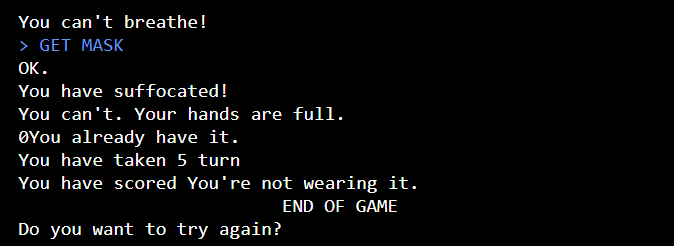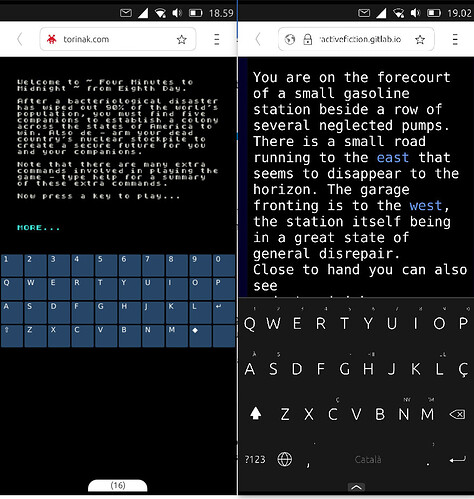One of the major issues that crops up moving from Quill code to any of the other systems, such as the Gilsoft PAWs, DAAD, or ngPAWS, is the switch from FOUR letter inputs to FIVE (or more).
Your examples highlight that issue and the fact that they’ll all need manually adjusting to insert the extra letter (or letters) so that inputs are parsed correctly. Working out and extending the words isn’t something that can be effectively automated.
For example, in one of your examples The Energem Enigma, in the very first location, you need to EXAMINE the PLANTS. However, only the Quill 4-letter command EXAM PLAN currently works… not EXAMI PLANTS or EXAMINE PLANTS… the fully typed words don’t register correctly.
Other, non-trivial Quill to later systems issues tend to involve VERB-NOUN clashes… The Quill doesn’t delineate between its vocabulary in that way… later systems, such as the PAW do, which involves some additional coding work. (In the PAW you tend to move any clashing verbs… ie. verbs which can also be nouns… to nouns and use the NOUN2 condact to interpret a NOUN NOUN sentence).
Sometimes by extending to FIVE letters rather than FOUR you also break the code, because you’re altering the core vocabulary. For example, say in Energem Enigma the author had not only used the vocab word PLAN for the PLANTS, but he might have also used PLAN for a set of PLANS (i.e. schematics) that appeared later in the game. Perhaps they also had an obscure input later like PLAN CRIME… In which cases you need to ensure that a FOUR letter PLAN is in the vocabulary as the equivalent word as PLANT, PLANTS and PLANS… so that fully typed inputs are still parsed correctly by your more advanced parser.
I can remember spending ages trying to track down a bug in a PAWed game I was working on with John Wilson… I just couldn’t replicate what he was seeing… It turned out that, because he was a devout Quill user, he naturally typed everything using only the first four letters of the word… and my code was requiring the use of at least five letters of the object name.
(The other option, to smooth the vocabulary transition from Quill, if your new engine/system allows it, is to only look at the first four letters of each word; aping the behaviour of Quill… That’s an option in some systems, like Adventuron)
There are all sorts of other little things that can catch you out when porting too. I’ve come across a wide range of issues when transferring titles, or helping others to do them. Even moving between Spectrum PAWs and CP/M PAWs, involves some quite essential little tweaks. It’s even worse when you have a game by a very clever Quill or PAW user; who has utilised the little quirks of each system in unusual ways.
Anyway, it’s very cool to see what you have done so far. I do like the way they play in the browser window.

